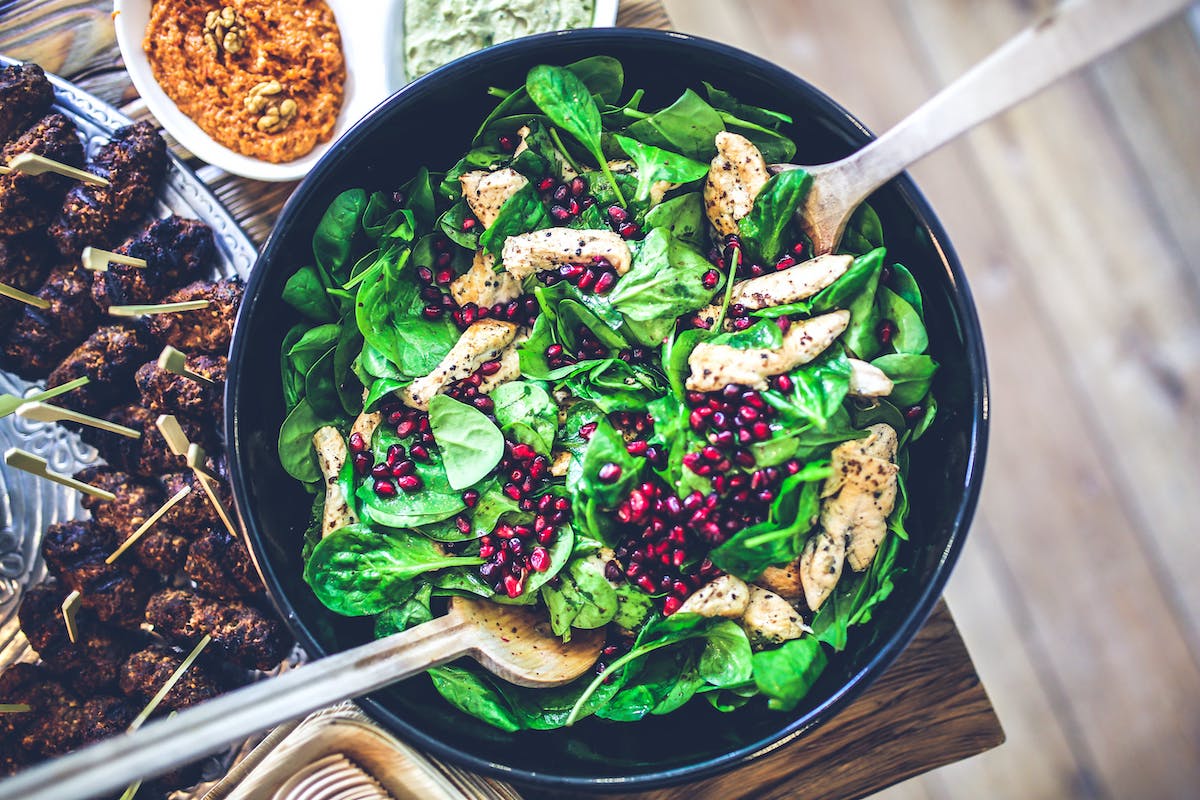
Health and food trends are a dime a dozen these days, no thanks to TikTok. However, a focus on protein consumption has existed long before even Facebook. The idea that we need to consume more protein for weight loss, strength, and overall health has been around for decades, and these messages usually come with recipes for protein shakes and affiliate discount codes for powders or supplements.
“In today’s health-conscious world, the allure of natural remedies for enhancing skin, hair, and nail beauty has taken hold,” said Dr. Viktoryia Kazlouskaya, MD, Ph.D., a dermatologist. “Many individuals are turning away from conventional medicine or cosmetic procedures, citing concerns about potential side effects. In their place, they seek alternatives, such as protein-rich foods, that can be easily incorporated into their daily diet.”
The truth is that studies show that most Americans consume enough protein from their diets already, so you likely don’t need any additional powders or supplements. That’s good news for your skin, hair, and nails. Experts explained the link between protein and your grooming regimen.

Why protein is essential to skincare, hair, and nails
We don’t just consume protein. Our body creates protein — tons of protein.
“The body produces over 10,000 types of protein, including elastin, collagen, and keratin, that all fall into seven different categories, all serving unique functions, including antibodies, contractile proteins, enzymes, hormonal proteins, structural proteins, storage proteins, and transport proteins,” said Dr. Matt Grazios, Ph.D., MS, the senior director of nutrition and regulatory compliance at Chobani.
We must consume what our bodies don’t make for our health (and even hair care).
“Complete proteins have all nine essential amino acids that our bodies cannot,” said Vanessa Rissetto, RD, a registered dietitian and CEO of Culina Health. “Incomplete protein has some of the nine amino acids, but not all, and usually comes from plants.”
What does all of this talk of amino acids and protein have to do with hair, skin, and nail care? Grazio mentioned elastin, collagen, and keratin above. They may sound familiar — all three are in many hair, skin, and nail care products.
“Hair, nails, and skin are primarily composed of keratin, a type of protein that provides them with their strength, flexibility, and resilience,” Dr. Kazlouskaya said. “Consuming an adequate amount of protein is essential for maintaining the health of these tissues.”
The opposite is also true.
“Individuals who follow strict diets or experience malnutrition may notice noticeable changes in their hair, skin, and nails,” Dr. Kazlouskaya said. “These changes are primarily due to nutrient deficiencies, as the body prioritizes essential functions over maintaining the health of these non-essential tissues.”
The good news is that most people get enough protein. How much is that if you want to bolster nail, skin, and hair health? It is the same as the general guidance for protein consumption.
“The amount of protein someone needs daily depends on their size,” Rissetto said. “Generally, for an adult, we are looking at somewhere between 70-150 g of protein per day, respectively.”

Ways to add protein to every meal
Protein is essential for good hair, skin, and nails. The good news is that you likely get plenty from your diet. Even if you don’t need to add more protein to your life, you may be in a meal-planning rut. Getting creative with consuming protein is one way to make eating more fun. Experts shared tips for adding protein to every meal. Get ready to eat your way to healthier nails, skin, and locks.
- Two eggs and half an avocado. Rissetto says you get a dozen grams of protein from the egg and two grams from the avocado.
- Greek yogurt bowl. Swap out high-sugar cereals for a protein-rich yogurt bowl. Dr. Grazios suggests one with Greek yogurt, fresh fruit, and whole-grain granola.
- Salad with chicken. Rissetto suggests consuming 4 ounces of grilled chicken, which will net you around 30 grams of protein. You might add it to a salad to liven up a plate of greens.
- Lettuce wraps. If you crave mid-day sandwiches, Dr. Grazios recommends lettuce wraps. Bibbs lettuce, oranges, cabbage, a cup of diced chicken, and a yogurt-based dressing are among the ingredients in one of his favorite wrap recipes.
- Yogurt drinks. A yogurt drink or smoothie and a piece of fresh fruit make for a worthy morning or mid-day snack that will hold you over until the next meal, Dr. Grazios said.
- Trail mix. You don’t need to hike to enjoy trail mix. Combining ingredients like nuts and gut-friendly pumpkin seeds can fuel even a long commute home thanks to protein and fiber, Dr. Grazios said.
- Dinner. Remember, balance is key. Despite what you might see on TikTok, protein is part of a plate, not the whole shebang. “Balance your plate with one-fourth lean protein like salmon or grilled chicken, one-fourth fiber-rich carbohydrates like brown rice, and half with non-starchy vegetables like zucchini or cauliflower,” Dr. Grazios said.
Do I need a protein supplement for better hair, skin, or nails?
Probably not.
“In general, if you’re not food-compromised or vegetarian, your protein intake should be pretty good,” Rissetto said. “We tend to put too much protein in food, so generally, no concerns there.”
Dr. Grazios agrees.
“Most adults in the U.S. are not protein deficient, so additional protein supplements are not necessary,” he said. “However, it’s important to consider the type of protein and ensure that protein is being incorporated into the diet throughout the day.”
Meeting with a dietician can clear up concerns.
Editors’ Recommendations
